In most parts of the world hospitality businesses are about to clock up a year of being in crisis mode and every one of those 12 months has felt like a 3-minute round facing Mike Tyson. Much like a boxing match against a higher-ranked opponent, a crisis typically follows a set trajectory.
Firstly, there is emergency period when the pugilist comes face to face with the full ferocity of what’s in front of them. Never before has the hospitality industry encountered such a dramatic, rapid and pervasive cessation of business as during the Covid-19 pandemic. Best laid plans of attack go out the window and survival mode kicks in.
Secondly the bout either comes to a swift conclusion with a knockout – businesses close their doors and exit the sector bruised and bloodied – or the regressive phase kicks in whereby the wounded warrior hunkers down, goes back to basics and settles in for the long game. Businesses dug in, took on fluids in the form of financial aid and stripped away all fat, reducing corporate weight by as much as 40%. Battling fatigue as well as both a weakening body and spirit, hospitality players have continued to battle away one round at a time.
The third phase of crisis is recovery. With the final bell not far away the fighter rallies and begins to jab, to feel a way past defences and to venture more aggressive punches and combinations that will ultimately see them emerge victorious. With a vaccine roll-out well underway, the hospitality industry too can now see a light at the end of the tunnel and is thus entering this recovery phase. Businesses are now faced with determining which combination of hooks and uppercuts will best lead them out of crisis. How will our business be relevant for the ‘new normal’? How do we future proof ourselves against future crises? How do we renew our company’s offering, our purpose? What have we learned, what good things have emerged from crisis? Who is still on board the bus, who needs to get off, who do we need to bring on?
One thing is certain – any hospitality business expecting to emerge from Covid-19 operating and behaving in exactly the same way as pre-crisis is doomed to failure. No matter how large the cash reserves a company may have, or how fantastic a product it has with a fully retained team, there are simply too many economic and marketplace variables for things to have remained the same. How businesses respond in the next eighteen months may determine their long-term relevance.
At HoCoSo we have identified five key areas that are top of mind for hospitality operators, owners and stakeholders as they look to position themselves for strong recovery.
 1- Strategy and growth
1- Strategy and growth
The pandemic has changed how individuals and organisations do business. It has catapulted us to a new level of digitisation, automation and remote working. Some of these changes will be permanent, others are still evolving. What we do know is that companies have had to restructure almost every aspect of their business. For all of us in hospitality – investors, operators, Governments and advisors alike – this has either derailed or profoundly changed corporate strategy from what was signed off pre-pandemic.
 As we start to map a route out of the crisis, it is time to prioritise, update and communicate a new post-pandemic corporate strategy. And what does that look like? There is of course one formulaic answer here. It depends on geographic location; and whether target markets are in the survive, regroup or recovery phase.
As we start to map a route out of the crisis, it is time to prioritise, update and communicate a new post-pandemic corporate strategy. And what does that look like? There is of course one formulaic answer here. It depends on geographic location; and whether target markets are in the survive, regroup or recovery phase.
Cash preservation has been paramount; with limited sources of demand, the options for many hospitality businesses have been pretty stark – close and hunker down, or innovate to work within Government restrictions. Extended stay hotels in particular have become the new “golden child” of hospitality. They have come out on top of the hospitality asset stack, as stranded guests, essential workers and what travellers there were, have all favoured them for their in-room catering facilities and “home-from-home” offerings.
As the roadmap out becomes clearer and the relaxation of restrictions on social interaction and travel becomes more certain, attention turns to assessing the business: how the organisation performed in crisis (and take advantage of this opportunity to improve crisis management protocols); what has changed internally and externally; and what might be the implications for the business. There are multiple approaches of doing this, all of which are anchored on obtaining and analysing feedback from all stakeholders and industry observers. This is not a finger pointing exercise. It is about developing an objective, realistic and accurate picture of the organisation’s competitive position today and where management wants to take it. It is also an iterative process. The impact of COVID-19 is triggering changes to how we do business in ways we do not yet fully comprehend.
Looking to the future: where and how does the company want to compete in tomorrow’s market? And is its purpose as a business still “fit for purpose”? The strategy will need to factor in that: according to medical experts, COVID will be around in one form or another for some time to come; the climate crisis is a priority and new legislation is being introduced in the short-term; and there is immense innovation occurring as a result of the acceleration in digitisation, automation and remote working. This may be the time to evolve the business offering. HR, Sales & Marketing, Technology, Finance and Operations will all need to be aligned with that new journey.
 And what about growth and shareholder value? For so long, the big driver of shareholder value in the hospitality industry has been pipeline growth. Given the climate crisis, prioritising new unit growth at the expense of all else is rapidly falling out of favour with investors and guests alike. Sustainable growth is not a new buzz word but it is firmly an imperative inside and outside the boards room. As new legislation and regulations related to climate change are progressively introduced internationally, markets are going to favour the developer, operator or investor that gets on top of this opportunity early. For evidence look at Brookfield, who snapped up Mark Carney, former Governor of the Bank of England and a leading advocate of green finance initiatives, to be its Head of ESG and Impact Fund Investing.
And what about growth and shareholder value? For so long, the big driver of shareholder value in the hospitality industry has been pipeline growth. Given the climate crisis, prioritising new unit growth at the expense of all else is rapidly falling out of favour with investors and guests alike. Sustainable growth is not a new buzz word but it is firmly an imperative inside and outside the boards room. As new legislation and regulations related to climate change are progressively introduced internationally, markets are going to favour the developer, operator or investor that gets on top of this opportunity early. For evidence look at Brookfield, who snapped up Mark Carney, former Governor of the Bank of England and a leading advocate of green finance initiatives, to be its Head of ESG and Impact Fund Investing.
More than ever, the strategy needs to be built on lessons of the past, the corporate infrastructure of the present and not just the trends of the future but the needs of the future.
Katharine Le Quesne is Managing Director of HoCoSo
She leads HoCoSo’s co-created solutions for next generation hospitality with a focus on markets undergoing explosive growth, regeneration or disruption.
2- Creativity & Innovation
It’s clear the hospitality sector needs more innovative and experiential concepts. The industry needs to repurpose its existing assets to make them future-proofed, by being more flexible, adaptable and focussed on communities within the hospitality establishment and locally. 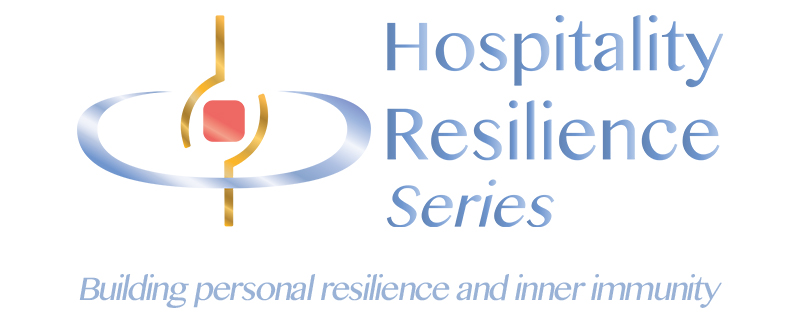 There are consumer needs which are still not being addressed, many around mental and physical wellbeing, such as those HoCoSo has explored in its Hospitality Resilience Series topics, including sleep, nutrition, personal transformation and community building. Hospitality Resilience Series | HoCoSo
There are consumer needs which are still not being addressed, many around mental and physical wellbeing, such as those HoCoSo has explored in its Hospitality Resilience Series topics, including sleep, nutrition, personal transformation and community building. Hospitality Resilience Series | HoCoSo
Customisation of experiences, services and product offerings are going to be key, at all price points. Customers today, are tailor-making their own environments, networks, interactions and consumption. Research into the future hotel room for the year 2035, led HoCoSo – in a collaboration with architects, designers, students and a brand agency – to create MyHeya, a room set-up which can be selected by the guest, prior to their stay. Heya (squarespace.com)
There also needs to be an integration of technology in order to enhance the consumer experience. Stay KooooK, which HoCoSo has been supporting SV Hotel with over the last few years, has one of the most seamless tech-guest experiences in the hospitality industry. This frees up their hosts, who are no longer focussed on mundane processes (sometimes labelled as services), such as check-in – “how was your journey?”, “could you sign the registration card?”, “here is the key to your room” – to customised conversations with the guests – “we notice from your social media that you like jazz music, did you know that there is a new show in town and we can book tickets for you if you like?” (85) Stay KooooK. Stay You. – Development – SV Hotel – YouTube
Hospitality needs new concepts and it needs them fast. With so many mega trends converging, global mobility, work-from-home, wellness, customisation and technology integration, investors and management companies need to be doing original consumer insight to determine their USPs and ensure that they stand out from the crowd.
Jonathan Humphries is Co-founder and Chairman of HoCoSo
He leads the team in all projects and initiatives and thrives on collaboration with his clients, teams, students and partners to find transformative solutions for the future of hospitality.
3- Technology – adapting and innovating
by Sean WORKER
The Covid-19 pandemic has seen 10 years of tech education take place in 10 months. Customer, Consumer, Client, Guest and User expectations have changed, forever and businesses in all categories are under immense pressure to deliver a much higher baseline of (digital/virtual?) User experience to simply compete. Many gurus have been screaming for years that “it’s all about the customer!” Now it really is.
 Many hospitality businesses are asking, “What tech do I need to change/adapt and/or innovate coming out Covid?” In other words, what list of hardware and software does my company need to be connected and competitive. This is where they should hit the pause button. Adding “Keyless Entry,” an updated APP or hunting for the next Property Management System upgrade is merely dealing with symptoms rather than the underlying cause of the problem. If customers are giving feedback that they want a ‘seamless/easy” experience, they want this to happen from the moment they discover the property through a Google search, not when they are standing outside a hotel room door while waving their phone at a reader (at the end of the journey).
Many hospitality businesses are asking, “What tech do I need to change/adapt and/or innovate coming out Covid?” In other words, what list of hardware and software does my company need to be connected and competitive. This is where they should hit the pause button. Adding “Keyless Entry,” an updated APP or hunting for the next Property Management System upgrade is merely dealing with symptoms rather than the underlying cause of the problem. If customers are giving feedback that they want a ‘seamless/easy” experience, they want this to happen from the moment they discover the property through a Google search, not when they are standing outside a hotel room door while waving their phone at a reader (at the end of the journey).
The challenge during these times is to build a technology stack that has optionality and scalability for future unknowns in order to stay relevant, regardless of the sector a business operates in. We would argue that User tolerances for poor end-to-end experience and service is the challenge for most companies. Again, trust and transparency of service offering in a secure environment is fundamentally expected to survive.
To assist the thought process on how to choose the right TECH technology stack of hardware and applications for a business we recommend this 4 Step roadmap.
Step 1 – User Centric Design (UCD)
This is a practical way of delivering whatever Adaption and Innovation a business has identified to bring to market or fix existing underlying problems. UCD enables identification of Stakeholders or Enterprise participants; namely Employees (by discipline and cultural experience), Investors, Suppliers, Customers, and Internal Departments.
Step 2 – Business Process Architecture (BPA)
BPA maps the desired outcomes and experiences that the business is seeking to address and deliver. BPA visualizes and “workflow” tests the desired outcomes and user experience pathing (Websites, ERPs etc.) in a theoretical environment (think playing “connect the dots” on a white board). It demands that you seek the most efficient way to deliver your product or experience to all the Stakeholders.
Step 3 – Business Intelligence
Customer, Supplier and Employee insights, in addition to Digital Security, Analytics (Operational and Financial) to name a few, are critical. The optimum outcome is that the Company builds systems that have flexibility, insight with predictive analytical tools, and makes it widely accessible to its Stakeholders. Many of these modules are available off the shelf and then ‘glued” together to create a bespoke platform. No journey is a straight line and using data allows course correction and adjustment of the BPA to stay relevant, adapt and or innovate.
Step 4 –Tech Solution Selection
A Company should complete, at least at a high level, the first three stages prior to going out purchasing/leasing/renting/building a Tech stack. We strongly suggest that where possible, companies engage an independent professional to assist the CTO/CIO in sourcing the architecture of the Tech Stack. Businesses would also do well to ask themselves, “Are we a pure play Tech company like AltoVita, Rentals United and others, or are we a highly Tech-enabled company like Marriott?”. Simply understanding that will help advance the value proposition.
Sean Worker is Managing Director of Technology, Adaption and Innovation Services at HoCoSo
He manages HoCoSo’s Technology and Business Transformation services, helping businesses improve their outcomes for success, emerge from crises in the best conditions possible, make them ready to get back up to speed and accelerate forward.
4- Operational Effectiveness
Hospitality operations have realized that labour costs and the availability of staff have moved from the horizon to the present. The COVID crisis has advanced the realization that the organizational structures have accelerated their rate of change to being better connected, flatter organizationally, less siloed and with a greater reliance on automation.
 The essential role that hospitality front-line staff perform will become more valuable and valued as these changes evolve. Successful companies will realize the greater value of their line staff and create a shared sense of purpose of how they benefit the community at large. Organizations will need to recruit, compensate, train, motivate and re-train and retain staff to adapt to the changing environment.
The essential role that hospitality front-line staff perform will become more valuable and valued as these changes evolve. Successful companies will realize the greater value of their line staff and create a shared sense of purpose of how they benefit the community at large. Organizations will need to recruit, compensate, train, motivate and re-train and retain staff to adapt to the changing environment.
Preparing for these changes will need an agile management team who can make fast decisions, delegate authority and responsibility, shift away from the “Command and Control” mindset to flatter, fitter and faster fit for purpose teams and overall realizing that staff are an asset, not an expense.
Alphy Johnson is Managing Director of the Americas at HoCoSo
He specializes in creating strategic plans for new brands, executive education, high-performance service teams in multi-cultural environments, Brand Architecture for start-up hotel companies, and mentoring hotel GMs and executives, particularly through crises.
5- Leadership & Organisation
The leadership skills that got companies through the emergency and regression phases of the Covid crisis are not necessarily well-suited to the recovery phase. The micro-management, speed of reaction and obsessiveness that was needed to prevent the ship going down can be obstructive to getting the boat back up to full power. Similarly, leadership cannot afford to sit back and check out altogether but needs to remain giving clear direction and oversight from the helm.
Leaders face a new balancing act of trying to bring normalcy back to their businesses while maintaining the focus on renewal and the way forward. This takes energy and deep resilience. Leaders need to take care of themselves in order to take care of others. The risk of burnout and fatigue is high and leaders need to be driving a corporate culture that supports employee wellbeing as well as one that accounts for the new realities of remote working. While communication skills have always been a core component of good leadership the pressure on leaders today to engage their employees in a meaningful way, often through virtual means, is even greater.
Boards and leadership therefore need to be assessing their management teams and reviewing if they have the right people in the right places. Hospitality leaders today need to be able to demonstrate:
- an ability to handle uncertainty and change;
- a progressive mindset that pursues innovation;
- an understanding of how their business relates to, and can interact with, the community and neighbourhood;
- an ability to inspire and motivate, often from a distance, as well as to maintain positive relationships with multiple stakeholders;
- strong commercial acumen combined with a laser focus on customer experience and engagement.
The social component of ESG is also coming under sharper focus and companies will need to increasingly demonstrate how they are serving, not only their internal constituents, but also the broader community. What role does the company play in society at large? Does it have a purpose beyond corporate profits? How well is it promoting gender equality and progressing the diversity and inclusivity agenda?
 Hospitality businesses will emerge from the pandemic leaner and more agile than pre-crisis. As recovery gets underway, some organisational headcount may be added back in, as companies staff back up in certain areas. Every hire, however, will be carefully considered and weighed up as companies question if there is an alternative, less traditional, way to get the same result. Our expectation is that we will not see a return to the former levels of employee overhead as businesses leverage the gig economy for outsourced contract workers, as well as increasingly implement tech-enabled efficiencies that allow for more streamlined operations.
Hospitality businesses will emerge from the pandemic leaner and more agile than pre-crisis. As recovery gets underway, some organisational headcount may be added back in, as companies staff back up in certain areas. Every hire, however, will be carefully considered and weighed up as companies question if there is an alternative, less traditional, way to get the same result. Our expectation is that we will not see a return to the former levels of employee overhead as businesses leverage the gig economy for outsourced contract workers, as well as increasingly implement tech-enabled efficiencies that allow for more streamlined operations.
Chris Mumford is Head of Leadership Services at HoCoSo
He heads HoCoSo’s Leadership Services practice providing bespoke talent solutions that support clients‘ strategic purpose and direction.
The future for hospitality, after a year of darkness, is beginning to look more hopeful. However, in order to be able to stand with hands aloft in victory, once the bell sounds at the end of the twelfth round, businesses still have a hard road ahead. We would do well to heed Winston Churchill’s advice to “never waste a good crisis.” Consumer habits will dictate the rise of new concepts, products and experiences; investor sentiment will drive more purpose-led growth strategies; technology will enable and encourage greater productivity, consumer experience and profitability; operations will be run more efficiently and by a multi-skilled workforce; organisations will be leaner and fitter and will be led by leaders who demonstrate a more inclusive and empathetic leadership style combined with an ability to flex and shift at short notice. Those that ultimately emerge victorious will be those who put every part of their business under the microscope and look at how to best reinvent, innovate and improve themselves, in order to retain a meaningful customer proposition and competitive edge.
About HoCoSo
HoCoSo are advisors with a difference.
We create tailor-made and innovative solutions for clients’ hospitality-led projects by bringing together the optimum team of sector specialists.
Jonathan Humphries, Chairman and Owner of HoCoSo, and his direct team specialize in the extended-stay, co-living, and hotel-alternatives hospitality market; luxury, lifestyle and boutique hotels; and resort developments in Europe, the Middle East and Africa (EMEA).
Our strengths lie in the following core services:
- Product & Concept Creation, for portfolio & individual asset developments.
- Strategic Development Projects with a focus on new-market / new-concept business expansion planning, operator selection, market and financial feasibility studies.
- Transformative Asset Management for brand re-positioning, asset re-evaluation and concept re-structuring.
- Hospitality Education for companies and academic institutions, with a focus on bespoke course development, training and teaching.
- Workshops, Keynotes and Conference Moderating for boards, leading international conferences and incubators.
During the covid19 crisis, HoCoSo launched HoCoSo CONNECT, an initiative aimed at bringing the industry together to brainstorm and collaborate; HoCoSo CONVERSATION, a podcast channel encouraging the discussion with thought leaders from around the globe, for the hospitality industry; and, in collaboration with Atlas Coaching and Cervus Leadership Consulting, we also launched the Hospitality Resilience Series , a combination of online events, insights and discussions aimed at helping build your personal resilience and inner immunity.







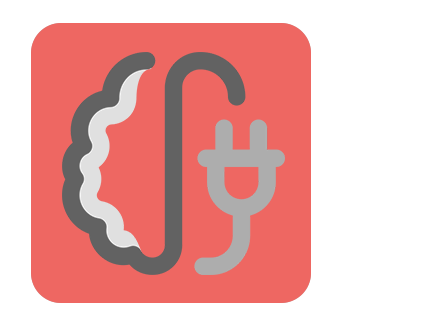

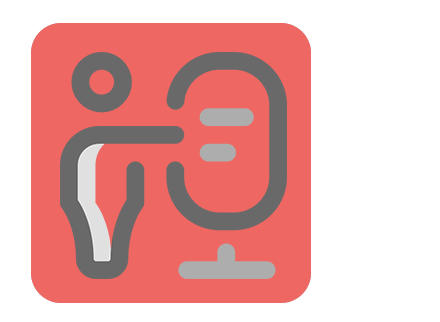



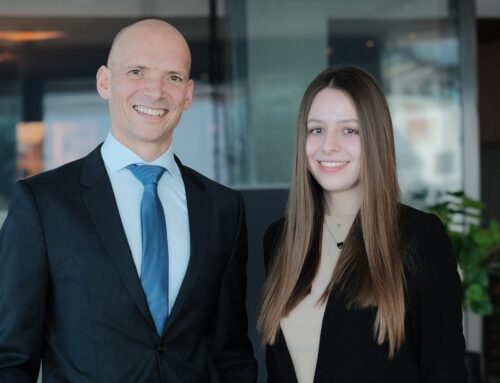

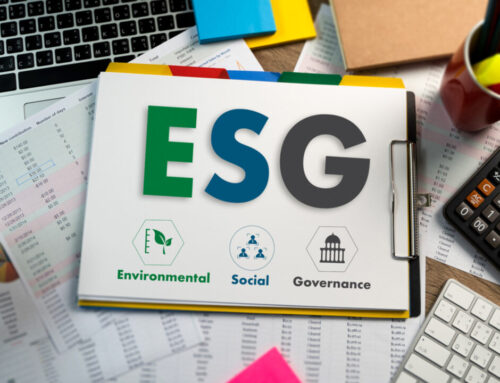
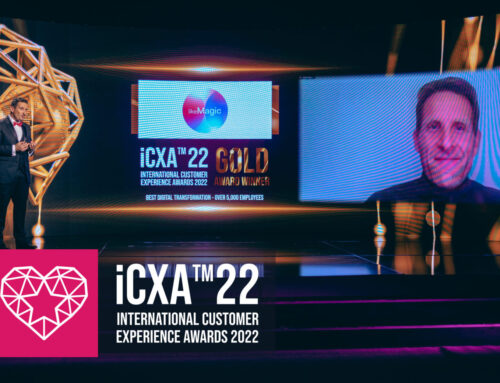
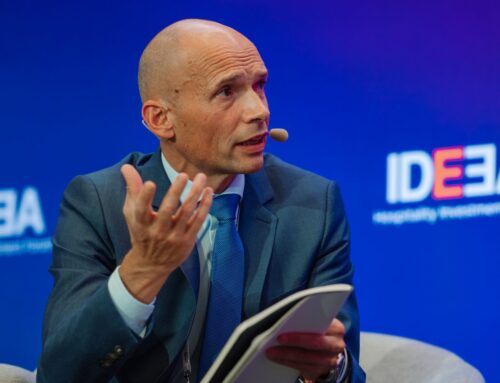
Leave A Comment